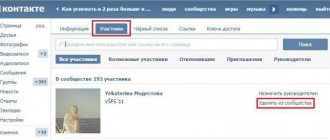Use Speccy for details
Although the System Information app contains a lot of useful information about your hardware and your software environment, if you want to download a third-party app, we recommend Speccy as the best option for most people. The free version works just fine; The professional version ($19.95) offers automatic updates and premium support, if you think you need these features you can buy.
Speccy has a nicer interface than the System Info app, focusing only on the hardware specifications for your system and providing additional specifications not found in System Info. On the "Summary" page in Speccy you can see the temperature of various components. The program also provides additional information, such as your motherboard model number, that is not available in System Information. The Summary page also includes important information such as graphics card and storage details.
How to delete information about yourself on the Internet – a hit of requests for the foreseeable future
In the foreseeable future, deleting information will become as common as deleting your own post on a social network. Fantasies? We already have one foot in this future.
Imagine if Instagram prohibits you from managing your published content. For example, it will not be possible to delete a post. “You posted the photo with us, which means it is no longer yours,” the moderators will say. Sounds absurd, right?
Services, corporations and the state are giving us more and more tools to delete information about ourselves on the Internet. This inevitably leads to demand from businesses and individuals to eliminate unwanted information. With demand comes supply, and competition makes the market more efficient and technologically advanced.
We are confidently moving towards a world where, thanks to technology, reputation will become flexible, and everyone can fix it. Moreover, everyone will make edits for a specific purpose. I will explain why I am confident in such a future.
When we founded Digital Sharks, part of the business community was openly afraid of us. Imagine: a team appears that will delete information about a person without trial. In the early 2010s, such a statement evoked associations with “gray” methods: hacking, hacker attacks, and possibly intimidation to the point of foul. A couple of times they even complained about us to the tax service.
Dynamics of legal removal of links. The further we go, the more often ordinary people turn to us
The Digital Sharks story is about going against the grain. Considerable effort went into explaining our methods: we act as a neutral party in the conflict between the business and the author of the negative, we rely heavily on negotiations, etc.
Questions also related to the ethical side of our services. In response, we explained: we work with reputational problems, that is, without commercial wars and industrial espionage.
Personal observation: in 2021 in Russia there is a much more tolerant attitude towards the legal deletion of information. This is an international trend that has reached us. The news talks about how businessmen are suing the media, YouTube is removing objectionable content, about the right to be forgotten, etc. Society sees that the state does not have a monopoly on removing information. This creates demand.
It is obvious that the trend will continue. If at the beginning we worked with large businesses, now both small companies and individuals turn to us. People are increasingly interested in how they are represented on the Internet.
A recent example. A simple girl approached us. During her student years, she often spoke at conferences. There she was photographed from the side. The photo turned out terrible, but it went viral. The girl was not happy with this, so she ordered us to delete the photo. More and more similar stories are appearing.
Over the past ten years, a request has been formed in Russia to clean up the “digital portrait.” It's not just about the negative. People contact us to remove information about themselves from third-party sites, outdated data, mentions of resolved conflicts, etc.
Let's look at the basis of our removal method - removal. To do this, let us remember what market relations are based on. To summarize, they work on the principle “you - to me, I - to you.” The client pays for the service and expects to receive it. We are not very upset when this chain breaks before the relationship is secured with money or an agreement.
Careless actions provoke new publications. It turns out that by deleting a couple of links, a person creates ten more with his own hands. Screenshot kommersant.ru
Let's say a young couple wants to live in their own house. They find construction companies on the Internet, read reviews about them, compare conditions and prices. As a result, a pool of three companies is formed. Next - a consultation with the manager, a visit to the production site, viewing a demo house and studying the contract. For the buyer, this is a calculation of risks and opportunities.
Are potential buyers confused by something? It's okay - you can turn to other companies. Yes, the time spent cannot be returned, but it was converted into experience. Now young people have something to compare with. In addition, the relationship is not secured by an agreement, which means that no one owes anyone anything.
It’s another matter when everything was great at the decision-making stage, but the end result is not satisfactory. In the voiced formula “you - to me, I - to you,” the balance is upset. The client did not receive enough service, and he develops a feeling of injustice. More often it results in an unflattering review.
Every real negative has its own backstory. Our task: to understand the author’s motivation, business opportunities to correct the situation and act as an independent party between them. You can’t imagine how many reviews you can delete if you call the author and say: “Yes, we made a mistake. We were wrong, sorry."
You cannot simply remove information from the Internet without consequences. The safest option is to solve the problem that caused the defamation in the first place.
One of the popular requests that come to us on social networks is how to quickly remove information about yourself from Yandex (or Google). Of course, we explain: the search service does not store information about you, it only shows the result of the request. If you need to remove something, then you need to contact the administration of the site where the data is published.
If you want to remove information about yourself from a search engine, you need to remove it from the site where it was published. The search engine will hide it automatically.
It is typical that such requests come from micro-enterprises, medium-sized and, sometimes, large businesses. Our observations “fight” with the research of the NAFI analytical center. Experts recently reported: over the past three years, the share of Russians with a sufficient level of digital literacy has remained virtually unchanged. For the first quarter of 2021, the figure stopped at 27%.
The pandemic has led to “forced” digitalization of many areas. More than half of Russians (59%) have mastered a number of new digital services and technologies. There is reason to believe that self-isolation will inadvertently trigger a wave of demand for the services of reputation agencies.
For Russians, the Internet is not only a quiet island where you can watch a TV series or make an appointment at a clinic. It's practically a second passport. Enter your name into Yandex and you will learn a lot about yourself. The next request will be “How to delete information about yourself on the Internet”? Do not deny.
The reputation request becomes more specific. Few people want a “good reputation.” Usually they ask to remove specific links and solve certain reputation problems.
A client can live without a business, but a business without a client cannot. This may be why we are seeing an arms race in the loyalty space. Over the past five years, the cost of acquiring a customer has doubled. This is caused by a sharp increase in competition. The number of commercial messages increased by 300% during the same time, the number of words in the average message increased by 100%.
Marketing is not enough, so the business shows that it shares the same values with the customer. At a minimum, the company is not indifferent to the fate of the buyer.
This metric indirectly confirms this. RepTrak agency specialists measured the level of reputation of the US banking industry. Traditionally, the country has a cool attitude towards financial institutions. But then the pandemic arrived, and banks began to forgive customers for delays in loans, inform them about measures against the spread of COVID-19, and revise for the better the conditions for using banking products.
The result is a sharp jump in approval, although in previous crises banks only lost reputational capital.
Reputation level of the US banking industry. RepTrak infographic
Let me remind you: deleting information about yourself on the Internet is, first of all, a solution to the client’s problem. In other words, the same customer service. The client complained that the workers did terrible sound insulation in the apartment? If the company corrects the defects at its own expense, the author himself will remove his review. In our practice, this happens in 60% of cases.
Without accepting the importance of the client, legal deletion of information will not work. Fortunately, the craze for loyalty programs has taught us, entrepreneurs, to be closer to the client.
1. There is a demand for correction of the “digital portrait” from the market. Businesses, media figures and ordinary people want to control what is written about them on the Internet.
2. After self-isolation, the level of digital literacy should increase significantly. This will lead to a more specific reputation request.
3. Companies that delete information on the Internet are switching to service models. This happened with Reputation.com, RepTrak and Digital Sharks. Transformation into a service is a consequence of well-established work mechanisms. Next is a race of technologies and approaches to work. Removal simply becomes more accessible.
4. In the post-Covid world, the future is dictated by the consumer. Business is looking for new ways to be closer to it. Most rely on customer service: operators answer calls faster, and managers quickly solve problems. In such conditions, it is easier to accept the idea of negotiations as a promising method for removing information from the Internet.
5. The listed factors are approaching the time when removal and its analogues will become the generally accepted norm. It is unlikely that a “delete” button will appear above articles in the media, but a wide circle of people will definitely know about this possibility.
Using Windows tools to determine photo metadata
The simplest method for those who do not want to look for advanced methods on the Internet. If you don’t have other tools at hand, just right-click on the photo, select “Properties” and find the “Details” tab in the window that opens. In this tab you will find out the parameters of the photo, its geolocation, date and other data.
How to edit or remove hidden EXIF data?
If you do not want a third party to obtain any information about your photos uploaded to the network, change or completely delete it. Both methods require minimal time investment, in return guaranteeing maximum security and anonymity of your photo online.
Delete all or some photo data
The easiest way to remove hidden data in a photo is to use Windows system tools. Let's look at how to do this step by step:
Open the photo properties, go to the “details” tab and you will see the “delete properties and personal information” item at the bottom.
Clicking on it will take you to a tab where you can independently select the data you want to delete.
If you don't want to lose this data, you can create a copy of the photo with the EXIF data removed while keeping the original. To do this, select the “create a copy, removing all possible properties” option. The “delete all properties for this file” item will permanently delete all EXIF data from the original.










